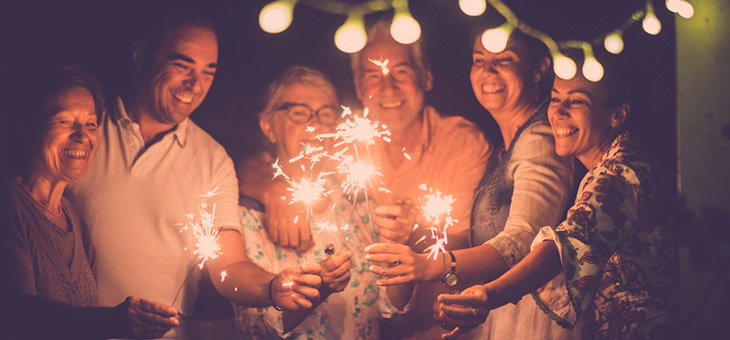Ageing is a concept that evokes fear in many women, but clinical psychologist, Mary Pipher, who specialises in women and girls, says it’s in your later years that you’re happiest.
“The fact of the matter is we have very good research from the University of California, San Diego, that shows that the happiest demographic in both the UK and the United States is older women,” Dr Pipher told RN’s Life Matters.
“In fact, people as they age in the United States get happier right up until the last three months before they die.”
She claims that with age brings a ‘mastery of mood’, decades in the making.
“We’ve learned over the course of a lifetime that we are responsible for our own happiness; that it’s a matter of attitude, a matter of intentionality, a choice and a set of skills,” she said.
“And we’ve had 70 years to build that set of skills.”
Her research also shows that men may also experience increased happiness as they age, but there are experiences in ageing that don’t translate across the sexes.
Dr Pipher says that when women are younger they are valued for their attractiveness and are “socialised to be caretakers” which can contribute to unhappiness. But, in their later years, that weight is lessened, with many ageing women saying they have “greater self-acceptance, a more relaxed sense of who they are [and] permission to be themselves”.
She says that with this acceptance comes a certain confidence, evident in the women her age “walking around in very functional underwear or naked, laughing and joking, with a much lighter, more self-accepting and other-accepting tone”.
Dr Pipher says that attitudes towards ageing need to be adjusted.
“The old ways of thinking about ageing don’t fit very well with a generation of healthy people who want to continue to grow and have experiences, and often are having the best times in their lives,” she says.
More significantly, she says, ageing creates a ‘deadline’ that puts an impetus on doing more things to bring pleasure.
“One of the things that happens when we realise that the runway is short, is that we also simultaneously realise how fortunate we are to be alive,” said Dr Pipher.
“I used to say, ‘well, eventually I’m going to do this – eventually I’m going to spend a whole day reading all my favourite books’, or ‘eventually I’m going to go out and visit this little museum that’s three hours away that I’ve always wanted to see’.
“Well, what happens for me is, at 71, ‘eventually’ is no longer a word to me. If I want to do something, I try to do it.”
While she suggests that ageing and happiness are linked, it doesn’t necessarily mean that ageing happily is a simple process.
“I never argue that any of us can be happy all the time,” she said.
“I think happiness and sorrow are as intermingled as sea water and saltwater in the sea, and that if we are a full person, feeling the full gamut of our emotions, we don’t feel happy all the time.
“Of course we feel sad, we feel pain, we feel anger. And in fact, authenticity and self-acceptance are being able to work skilfully with those emotions.”
She believes the key to happiness is to be wary of ‘the beautiful’.
“We can have that choice walking out of our best friend’s funeral. We can decide to look up at the clouds in the sky or taste the rain on our tongue or listen for birdsong.
“The more loss, the more that is taken from them, the more they have learned to savour that which is left,” she says.
“All these things don’t mean we don’t feel pain, but we can make some choices that allow us to grow into bigger people than we would have been otherwise.”
Do you agree that your 70s are your happiest years?
If you enjoy our content, don’t keep it to yourself. Share our free eNews with your friends and encourage them to sign up.
Related articles:
Happy retirement a fantasy for many
What makes you happy?
What guarantees a happy retirement

